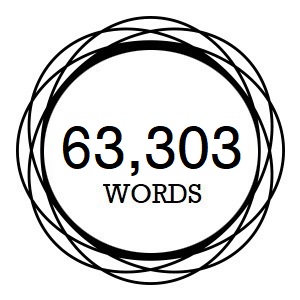63,303
 If I asked you to guess what jobs were being advertised here …
If I asked you to guess what jobs were being advertised here …
- 1. WANTED
Do you spend all your time thinking about how to hurt people? How to torment them? How to torture them? Are there no depths you’ve haven’t ploughed? Ruin their relationships, destroy their families, dredge up the secrets from their past, and set them onto a course to oblivion? Do you not only contemplate all these courses – and more – but also take delight in them? Do you relish the damage that you can do? Do you take joy in your own cleverness? Do you take your plans and go over and over and over them, trying to perfect them?
2. WANTED
Interested in concocting plans of violence and destruction? Rob a bank. Kidnap and ask for a ransom. Commit an amazing murder. Commit many murders. Hurt and maim and kill. Devastate. And elude and befuddle the authorities. Taunt them, wherever possible. Show them up as incompetent. Celebrate your most heinous glories for all the world to see and fear, while mocking everybody else’s safety and security.
3. WANTED
Are you capable of threatening democracy? Of rattling its foundations? Perhaps you can bring down a government. Set bombs and rob the everyday people of their security. Destroy strategic targets and let civilisation know that the day of reckoning is near. Threaten to burn the world in pursuit of your own ideals, or a radical refurbishment of life as we know it.
… what would you say?
Your answers might be:
- Homewrecker / Narcissist
- Murderer / Kidnapper / Serial Killer
- Terrorist / Spy / Donald Trump
Your answers would be wrong. Well, in this context. The answer for all three is simpler:
Writers think about this sort of stuff all the time.
And it’s always miserable. Stories aren’t happy. They may have happy moments. They may end with the contemporary equivalent of, And they lived happily ever after. But the journey to get there is a passage through shit and misery, because that’s what makes stories interesting. Nobody wants to sit around reading 80,000 words about characters having a good time.
Part of what makes reading compelling is that journey, in seeing characters confront and overcome obstacles, grow, and move forward; or seeing that no matter how our way of life is threatened, we can triumph and move on.
As it is, I think writers are, generally, a lot more sensitive and definitely more empathetic than most people. That’s why (and how) they’re able to get into the headspace of so many different characters and represent them genuinely. It’s how they’re able to insert these characters into extraordinary circumstances and produce authentic outcomes. It’s how, when they’re successful, they deliver verisimilitude.
But thinking about all this can’t be healthy.
It’s been shown that our thoughts influence our outlook. You don’t have to be experiencing a terrible time to feel terrible – you can feel terrible just by recounting a terrible memory. That’s enough. Everybody would’ve experienced this at some point – watching a recording, for example, that either made them feel happy (e.g. a wedding) or sad (e.g. a funeral) even though it might be years (or decades) since those events.
Making matters worse is that writing is an isolated pursuit. Writers don’t sit in offices chatting away with workmates. They sit alone trying to get all this to work.
And then there’s that whole judgemental hierarchy, e.g.
- Is this any good?
- Will the publisher accept it?
- Will people like it?
- Will reviewers like it?
- Will people buy it?
Most writers wouldn’t think, Yes. That confidence isn’t in their DNA. Most writers would think catastrophically. E.g.
- Is this any good? It’s terrible.
- Will the publisher accept it? No – it’s not good enough.
- Will people like it? They’ll think it’s horrible.
- Will reviewers like it? They’ll pillory it.
- Will people buy it? Nobody will buy it.
This isn’t even pessimism. Publishers reject books – even good ones. Art is subjective, and plenty of great books haven’t been recognised as great until long, long, long after the author is gone. Tons of books – even amazing books – don’t sell.
It’s a mess. All of it. So it’s little wonder that writers can feel down.
And it’s something to be aware of. I don’t have any solutions. I doubt there’d be a blanket solution, just like there isn’t a blanket methodology to writing.
But it’s something to be aware of, and it’s equally important to find a constructive way through it.
